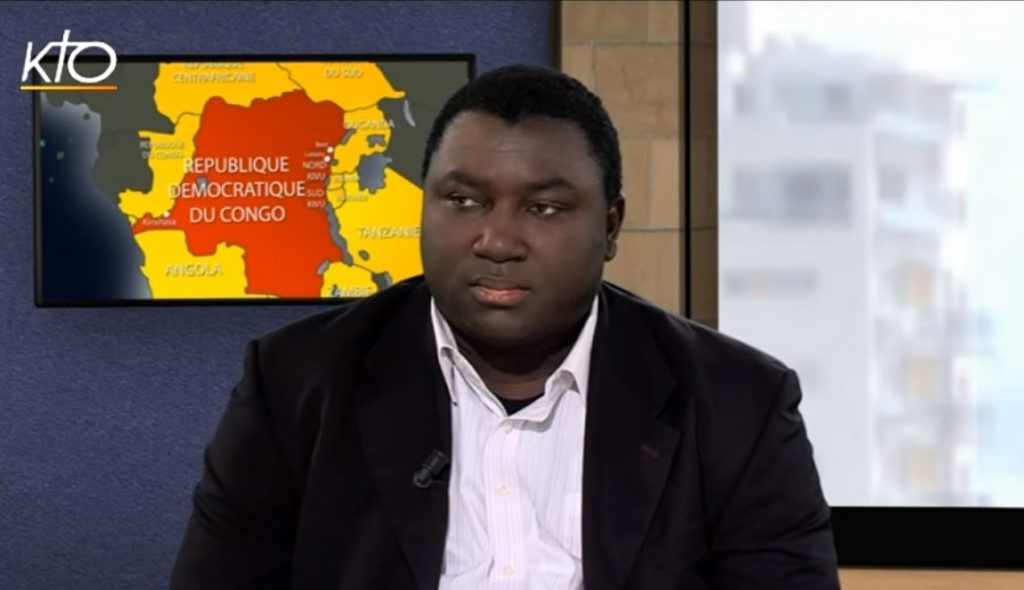Garrison on Ugandan air strikes in the Democratic Republic of the Congo Interview with Boniface Musavuli
KPFA News Anchor: On Friday Uganda’s attack aircraft crossed the Uganda/Congo border to strike Beni Territory in eastern Congo’s North Kivu Province. At the same time Ugandan troops began firing long range weapons into Congo from the Ugandan side of the border. KPFA’s Ann Garrison spoke to Boniface Musavuli, a native of Beni in political exile in France and author of the book “The Massacres of Beni.”
Ann Garrison: Boniface, just a few days ago, Uganda promised to keep its army on the Ugandan side of the Congolese border, but now its attack aircraft are dropping bombs on the Congolese side and firing long range weapons across the border. This might be called an invasion if it weren’t a joint operation with the Congolese military. Why are these two armies working together to shell and bomb Beni?

Boniface Musavuli: Firstly, this military operation is a violation of the international law. Uganda has already been condemned by the International Court of Justice for assaulting and occupying the Congo between 1998 and 2003. The UN Charter prohibits states from using military force on the territory of a foreign state unless they have the UN mandate or authorization from the government of the state concerned. Until now, there is no Security Council resolution authorizing Uganda to conduct military operations on Congolese territory. Also, in the Congo, there is no official decision from either the government or parliament authorizing the Ugandan army to conduct operations on Congolese territory. Finally, President Joseph Kabila cannot take such a decision because he has been out of office since December 2016. The DRC Constitution does not allow a president whose term of office has expired to bring in a foreign army on Congolese territory. So Uganda is violating international law.
AG: Uganda says they’re hunting down the Islamist ADF militia to make sure it doesn’t attack Uganda, which they fear because, they say, the Islamist militia attacked the UN’s Tanzanian Peacekeepers last week. What’s really going on?
BM: This argument is problematic and violates the principles of international law which is opposed to the theory of “preventive warfare”. A State cannot conduct operations on the territory of another State because it suspects that a threat will come from that State. In the specific case of Uganda, we know that the attack on Tanzanian peacekeepers was not carried out by the ADF. Moreover, the ADF no longer exists as a military force since April 2014. The massacres and violence that have been taking place in Beni since 2014 are carried out by certain units of the Congolese army and criminals recruited in Rwanda by officers of the Congolese army to cause chaos in Beni. Even when the ADF existed as military force, they were not attacking Uganda. The Ugandan army operation is therefore not justified by the “ADF security threat”.
AG: Could you say something about the Tanzanian peacekeepers, fourteen of whom died during the December 7 attack?
BM: The Tanzanian peacekeepers had a peculiarity: they had earned the confidence of Beni’s population for several reasons: they were the most motivated contingent and the population was more likely to confide in them than Congolese soldiers. It must always be kept in mind that most Congolese army units in this part of the Congo are led by Rwandan officers who are hated by the population for their crimes.
AG: So the people of Beni have Rwandan officers in their own army and now they’ve got Ugandan attack aircraft overhead. Is this the latest phase of the de facto occupation that began when Rwanda and Uganda invaded Congo in the 1990s?
BM: Thousands of Rwandan soldiers were poured into the ranks of the Congolese army following the Goma accords of March 2009. Since 2013, thousands of Rwandans have been sent to Beni where they are occupying the lands where the ADF were conducting their activities. Uganda is currently in conflict with Rwanda and certainly does not welcome this massive influx of Rwandan soldiers and civilians into this part of the Congo bordering its territory.
AG: Earlier this week, MONUSCO’s Public Information Director responded to my inquiry and said that when the UN Security Council renewed the Tanzanian troops mandate, they “stressed the importance of neutralizing the Allied Democratic Forces (ADF) among other armed groups.” Now the UN News report, the UN’s Radio Okapi, and MONUSCO Chief Maman S. Sidikoua all blame the ADF for this attack on the Tanzanian peacekeepers. Your response? BM: The UN has been talking about “alleged ADFs” for almost three years now because it knows that the “real ADFs” no longer exist. ADF leader Jamil Mukulu was arrested in Tanzania in April 2015 and has been in prison in Uganda since May 2015. All the area formely controlled by the ADF have already been recovered by the army and MONUSCO. The attack on the peacekeepers was carried out by a force of several hundred fighters wearing FARDC uniforms in an area under army control. The ADF, even when they were active, could not carry out such a large-scale operation. Moreover, the number of ADF who survived the 2014 operations is estimated at only a hundred individuals, on the spot, scattered throughout the bush, without coordination or supplies. Who can believe that individuals in such a situation could mobilize several hundred fighters and attack a position of the peacekeepers for more than three hours ? AG: And that was Boniface Musavuli, native of Beni Territory in the Democratic Republic of the Congo’s North Kivu Province. The Congo crisis is now one of the greatest humanitarian emergencies in the world and the most underreported. An average of 5,500 people a day flee violence and insecurity, even more than in Iraq, Syria, and Yemen..” In Berkeley, for Pacifica, KPFA Radio
To listen to this interview, go to the following link :
https://soundcloud.com/kpfa-fm-94-1-berkeley/uganda-attacks-congos-beni-territory?utm_source=soundcloud&utm_campaign=share&utm_medium=facebook

